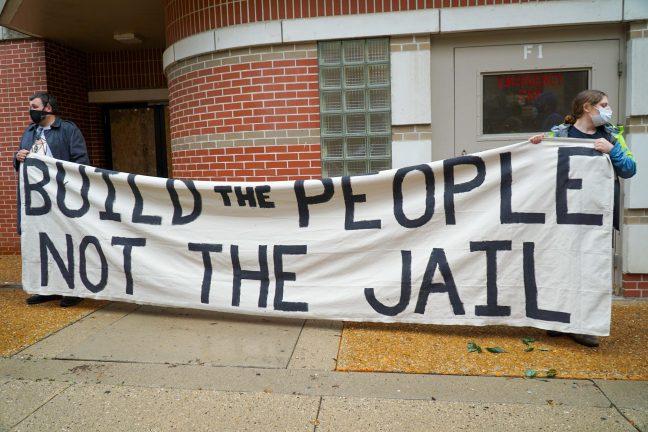As Wisconsin’s midterm elections loom, candidates on the ballot are clarifying their stances on key issues for voters across the state. One subject gaining increasing attention is the state of crime and criminal proceedings.
Crime is a common issue on the ballot for voters, particularly for Republicans who notoriously advocate for stricter punishments and raise concerns over rising crime rates. Wisconsin’s Senate race exemplifies this shift away from other issues previously at the top of mind for voters, such as concerns over inflation and abortion rights.
Now, the state’s GOP and its supporters are criticizing Democratic candidate Mandela Barnes over his proposals on the issue of crime in Wisconsin. One of the harshest attacks against Barnes centers around his opinions on cash bail.
Barnes opposes the use of cash bail in the criminal justice system and has doubled down in recent weeks on his plans to eliminate the practice. Judges would instead release all defendants until their trial date unless there is clear evidence demonstrating the individual to be either a flight risk or a danger to others.
Cash bail is, very simply, a form of insurance to hold defendants accountable for returning to court on their trial date. A specified amount of money is set by the judge on a case-per-case basis, and is held by the court until the defendant returns for their trial and a ruling is handed down.
If Barnes’ plan for Wisconsin looks anything like the bill he introduced in 2016 as a legislator, this practice would be completely eliminated from the justice system. It should be noted that judges would still be able to hold certain defendants if evidence points to them being a risk upon release.
The Wisconsin GOP’s political ads for this midterm label the proposal as dangerous, with one specifically citing an incident in Waukesha last November. In the case, the mother of the defendant, Darrell Brooks, posted his $1000 bail days before he ran his car into the crowd watching the annual Christmas Parade.
While the specifics of this particular case remain devastating, the issue does not come down to Brooks’ low price of bail. Regardless of what price bail is set at, keeping the concept of bail as a safety precaution is simply unfounded.
In a cash bail system, the main determinant of who remains in jail and who walks free before trial is wealth, rather than risk level. This has led to skewed outcomes in terms of who serves time and who doesn’t, with no correlation to a jury’s verdict.
For those who are jailed before their trial, the impact on their life can be brutal. Being detained for any amount of time is bound to sully the reputation of any individual, regardless of whether they are found guilty or not in their case.
Even a few days in jail can result in jobs lost, housing options or lease offers evaporating and custody rights threatened. A Stanford Law Review article found that detained defendants are more than 25% more likely to plead guilty regardless of their actual innocence and receive around double the amount of jail time, on average.
Pre-jailed defendants are also more likely to commit crime at a higher rate down the line, even when controlling for other factors such as the initial bail amount, demographic information and criminal history.
Due to the inextricable link between income and race in the United States, people of color are disproportionately jailed before trial, and are thus those who feel these consequences the most.
Detaining individuals before trial is also costly on our criminal justice system. The U.S. spends around $14 billion annually to jail those awaiting trial. State and federal prisoners often use taxpayer dollars to fund these operations.
Little or no bail also does not necessarily increase the risk of dangerous criminals walking free in the weeks leading up to their trial. Even in the instance of a judge choosing to raise bail in an attempt to hold a defendant in jail until their court date, this still leaves the door open for said defendant to find the funds necessary to walk free — especially if they come from a wealthy background.
If a judge determines a defendant to be so potentially dangerous to themselves or others that they choose to raise bail exponentially in an attempt to keep them detained, Barnes’ plan to eliminate cash bail in favor of a decision made wholly on the risk-level of a defendant would meet the same end goal and do so more reliably.
Our bail system as it stands today is ineffective, unequal and costly. Cash bail does not target those most likely to commit crime before trial, but impacts people of color and low-income defendants with stunning precision and disastrous effects. If safety is truly the primary reason for bail, then it has clearly failed as a concept.
Proposing a mere increase in the dollar amount of bail charges will not solve the problem, but instead implies that low-income defendants are inherently and systemically more dangerous to the public than the rich.
Wisconsin needs to change its strategy as it relates to pretrial detention. Perhaps it is fair to argue that Barnes must better explain the complete details of his proposal. Perhaps there is a time and place for jailing defendants before trial as a precautionary measure. However, it is exorbitantly clear that the bail system is not the answer.
Fiona Hatch (fhatch@badgerherald.com) is a sophomore studying political science and international studies.


